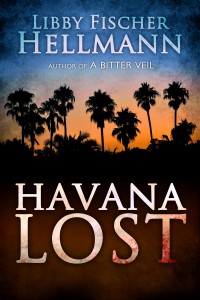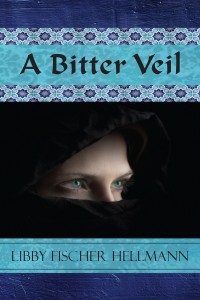 In fiction, they say, there must be conflict on every page, even if it’s only someone wanting a glass of water that he or she can’t get. I tend to overdo things in general, and creating conflict is no exception. What could provide more conflict than a revolution? When my characters’ lives unfold against an uncertain and potentially violent backdrop, almost anything can—and does—happen.
In fiction, they say, there must be conflict on every page, even if it’s only someone wanting a glass of water that he or she can’t get. I tend to overdo things in general, and creating conflict is no exception. What could provide more conflict than a revolution? When my characters’ lives unfold against an uncertain and potentially violent backdrop, almost anything can—and does—happen.
Extreme times demand extreme survival strategies
I can’t imagine a more extreme conflict than a revolution. It affects everything and everyone: from individuals, to families, to neighborhoods, cities, countries, and regions. A revolution can impact a society’s culture and art, its food supplies, education, income, personal freedoms, literature—the entire Zeitgeist. It affects the way people trust or don’t trust one another. It splits families in two. It makes everyday living dangerous and unpredictable. Essentially, it touches every aspect of life.
When you layer that extreme conflict on top of conflicts that already exist in a person’s life, those people become unpredictable. Some become heroes, some cowards. I love to write about that evolution in a character, and I’m often surprised by what happens. Just when I’m convinced they’re about to behave one way, they take a different direction altogether. When that happens, it makes me feel more like an observer than a creator.
The art of unpredictability
Some readers say they love my novels because they’re unpredictable. I do it on purpose. In too many crime novels the hero or heroine does the right thing, faultless in their judgement, always emerging unharmed at the end. My plots are different. More noir. I let my characters develop the way they want, and if you expect my heroes and heroines to win their battles every time, think again. He or she might not even make it past the first few chapters if that’s the way the revolutionary cookie crumbles.
The ‘revolution trilogy’

 An Eye For Murder goes back to World War Two, which, although not technically a revolution, was indeed a period of extreme conflict. An Image of Death deals with the collapse of the Soviet Union. Set the Night on Fire took place during the troubled times of the late 1960s in the US. A Bitter Veil explores a family’s life in Iran during the Iranian revolution. And Havana Lost, my latest release, is set partially during the Cuban revolution and its Special Period. But there’s also action taking place in Angola – which was and still is an incredibly violent and lawless place— and Chicago. In fact, my former publisher has labelled my latest three books my “Revolution Trilogy.”
An Eye For Murder goes back to World War Two, which, although not technically a revolution, was indeed a period of extreme conflict. An Image of Death deals with the collapse of the Soviet Union. Set the Night on Fire took place during the troubled times of the late 1960s in the US. A Bitter Veil explores a family’s life in Iran during the Iranian revolution. And Havana Lost, my latest release, is set partially during the Cuban revolution and its Special Period. But there’s also action taking place in Angola – which was and still is an incredibly violent and lawless place— and Chicago. In fact, my former publisher has labelled my latest three books my “Revolution Trilogy.”
It doesn’t hurt that I’m a history major and I love to read and do research. It’s almost Pavlovian on my part. And I find it curious that although every revolution is different, and has ignited for different ideological reasons, many end up being quite similar.
Revolution 101
Take the Russian revolution in 1917, where Tzar Nicholas and his family were brutally slaughtered, followed by years of suffering for ordinary Russian people. The French revolution, where the aristocracy lost their heads but the poor ultimately suffered most. And the Chinese ‘cultural’ revolution, where innocent people died in the millions. It’s a common theme; people want to be free, but their leaders don’t know what to do with their freedom when they get it. And it’s the ordinary people who seem to suffer most when things don’t turn out as the revolutionaries planned.
Ironically, the only revolution that was different was the American. We didn’t have a dictator or oppressive political culture. Our revolution was waged for purely economic reasons, ie what the colonists felt were unfair taxes. I wonder what that says about us.
When the only certainty is uncertainty
When I put my characters squarely into a revolution, the only thing that is certain is change… and not usually in a good way. The way my characters face up to that change and handle its challenges is what makes writing so much fun. They all have minds of their own, and like all of us, they are essentially unpredictable, especially under stress. And also like most of us, their instinct for survival is what drives them to survive desperate circumstances.
Pick your weapons… what about you?
If you could choose a revolution for me to write about, which one would it be, and why?